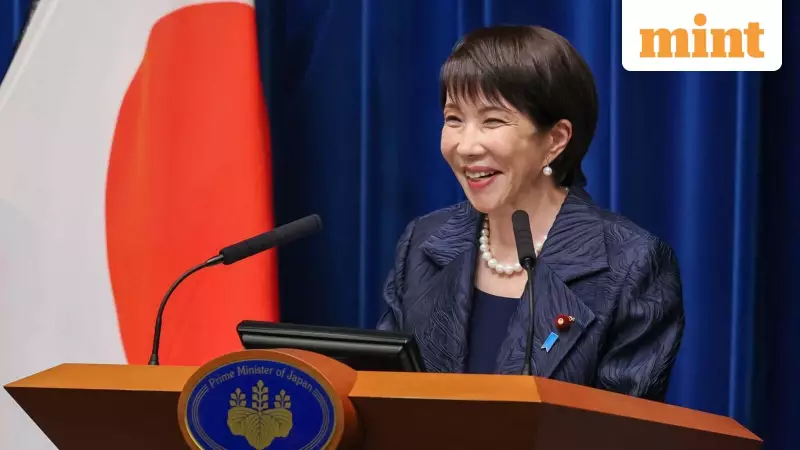
Japan's New Prime Minister Faces Backlash Over 3 AM Meeting
Japan's newly appointed Prime Minister Sanae Takaichi has ignited a nationwide controversy after holding an unexpected meeting with her aides at 3 am, a move that critics argue perpetuates the country's deeply entrenched culture of overwork. The incident, reported by the New York Times, has triggered intense debate in a nation where 'karoshi' - death from overwork - remains a significant social concern.
The Midnight Meeting That Shook Japan
CCTV footage captured Ms Takaichi leaving her private Tokyo residence in the early hours of Friday to review briefing documents ahead of a 9 am parliamentary budget session. The surprise meeting, which reportedly lasted nearly three hours, involved several staff members who were summoned during what most consider sleeping hours.
Opposition leader and former Prime Minister Yoshihiko Noda strongly condemned the decision, describing it as "crazy" and asserting that no leader should compel staff to work at such unreasonable hours. "Everyone is asleep at that time. It's a sad attitude for a national leader," Mr Noda stated, capturing the sentiment of many critics.
Defense and Support in Equal Measure
Prime Minister Takaichi, who made history last month by becoming Japan's first woman prime minister, defended her actions in Parliament. She explained that her home fax machine had malfunctioned, creating an urgent need to review documents. While acknowledging the "inconvenience" caused to her aides, she maintained that the early morning meeting was essential to rewrite responses for lawmakers.
Supporters from her ruling Liberal Democratic Party have rallied behind her, placing blame on opposition MPs for submitting questions too late in the process. Some business leaders have also come to her defense, arguing that national leaders - similar to police officers, doctors, and soldiers - should be prepared to work around the clock when necessary.
Broader Implications for Japan's Work Culture
The controversy emerges at a critical time when Japan is debating whether to ease its overtime cap of 45 hours per month. This regulation was introduced following the 2016 suicide of a young advertising employee who had logged more than 100 hours of overtime. Prime Minister Takaichi has previously expressed support for allowing additional overtime to increase workers' income, though she emphasizes that such measures should not compromise workers' health.
Ms Takaichi has long cultivated an image as a relentless worker, promising during her leadership campaign that she would "work and work and work" once in office. This stance has particularly upset families of overwork victims who see it as glorifying the very culture that has claimed lives.
Despite being only three weeks into her tenure, the Prime Minister has maintained a packed schedule that includes hosting US President Donald Trump and attending summits in Malaysia and South Korea.
Nevertheless, experts warn that a 3 am meeting establishes a troubling precedent. Former economic official Shigeaki Koga remarked, "Three o'clock in the morning is too early, no matter what," adding that while prime ministers may never fully rest, they should not impose such extreme hours on their staff members.






